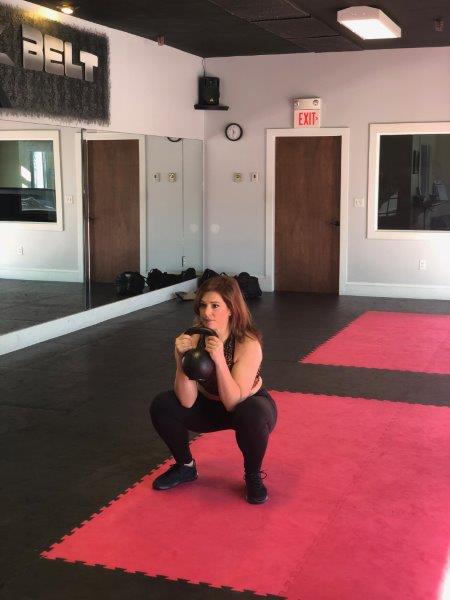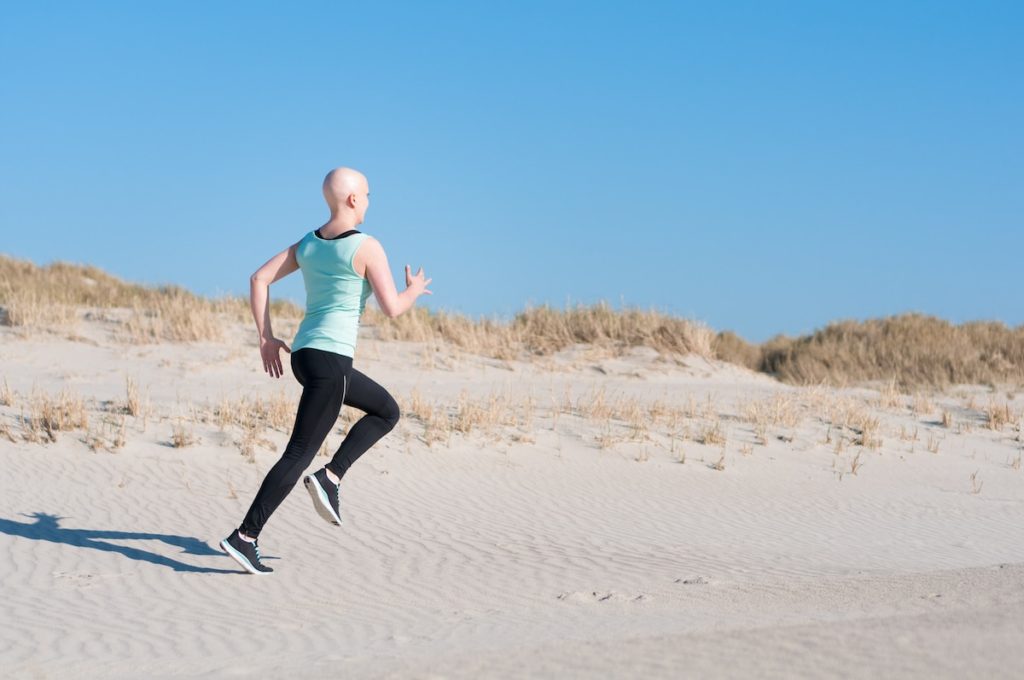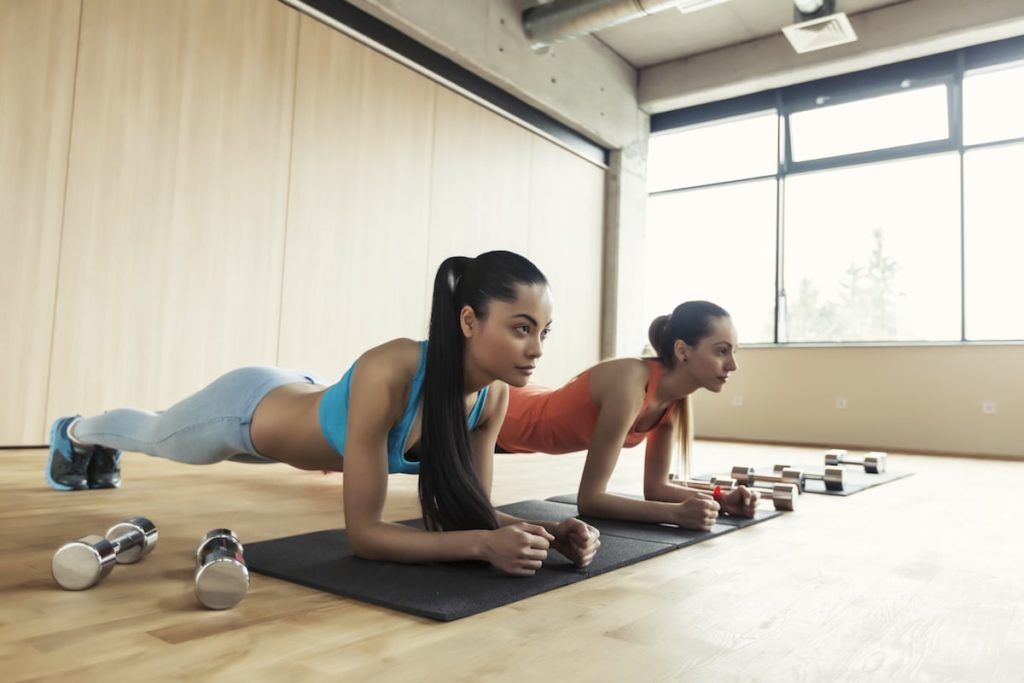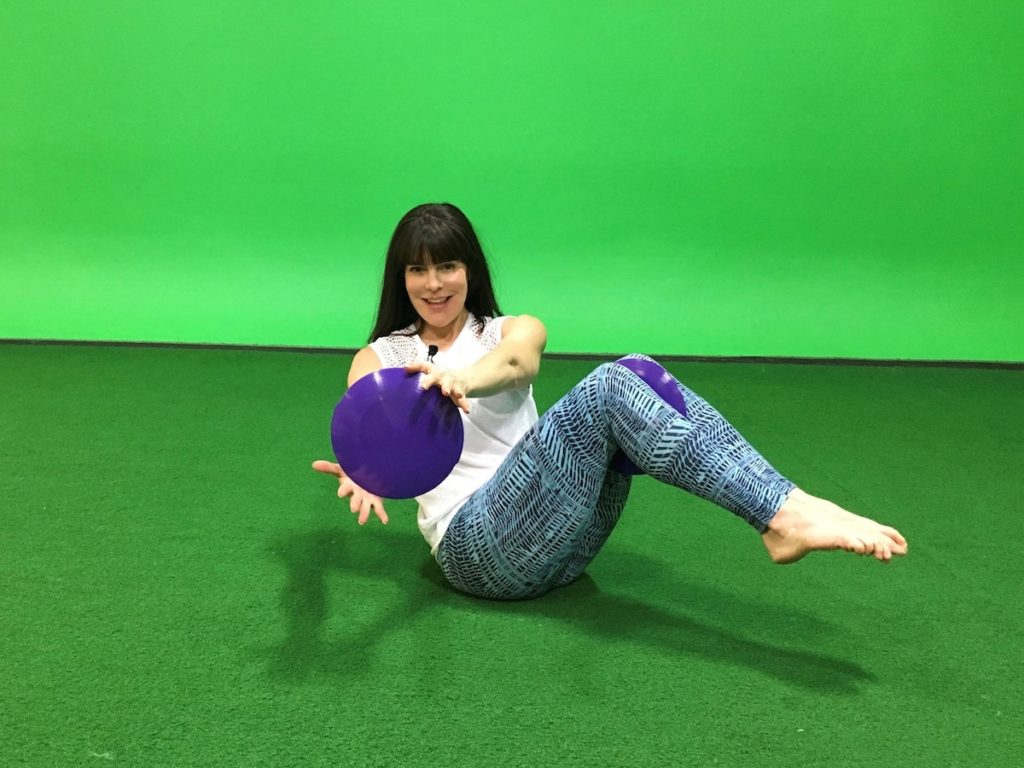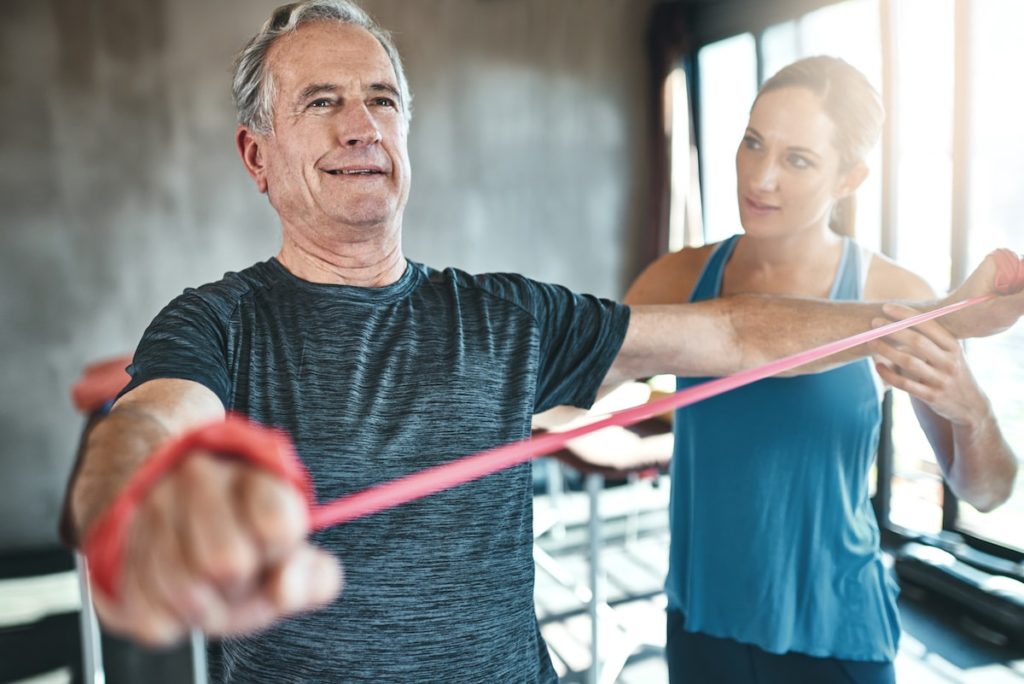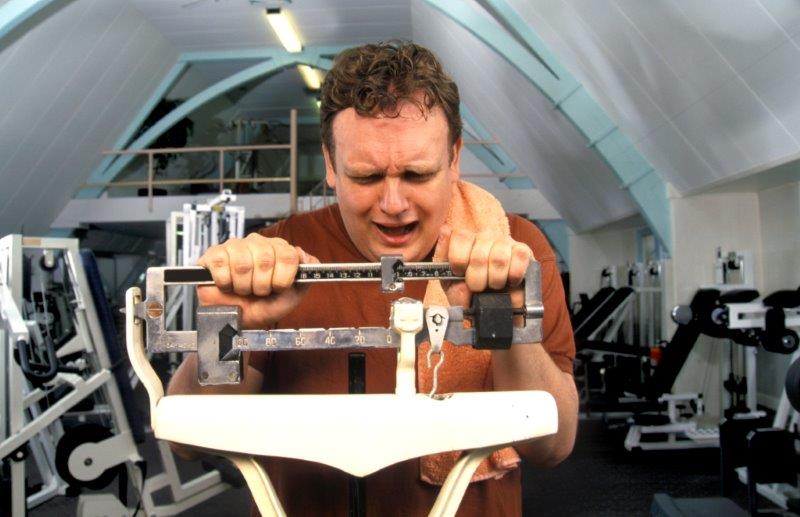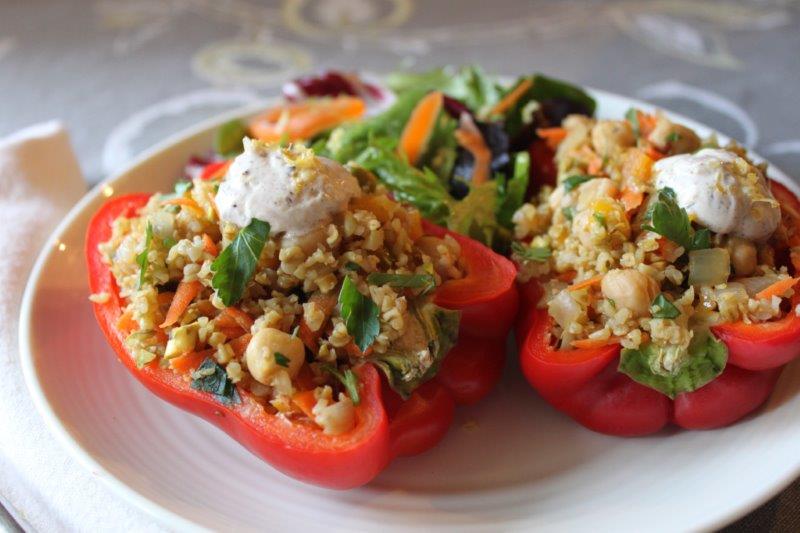Archive for February 2018
Creative Ideas That Inspire
Aerial Silks, at Twisted Bodies™ in Denton, Texas, teaches this athletic circus art discipline in the style of Cirque du Soleil®. Participants learn to climb the paired lengths of fabric that extend from the ceiling, wrapping or tying them around the body to execute dramatic drops and poses. Classes promote strength, flexibility, coordination and balance.
In Ninja Kids Class, offered at Conquer Ninja Gyms at several Minnesota locations, instructors teach kids aged 5–10 to develop ninja skills and strength on a variety of obstacles.
Green Exercise: How It Benefits You
Here’s a look at what the latest findings tell us about why you may want to incorporate green exercise into your programs.
Read MoreGetting to the Bottom: The Ischial Tuberosity
The posterior aspect of the body, along with its muscles, tendons, bones and attachments, is easy to overlook because it’s out of sight and, therefore, often out of mind. Until, that is, pain occurs. The ischial tuberosity—also known as the “sit bones” or even “sitz bones” (from the German word sitzen) (Garikiparithi 2017)—has many different connections, although it is mainly associated with the hamstring muscles (Drake et al. 2010).
Read MoreThe Well-Stocked Pantry: A Cook’s First Line of Healthy Defense
Coach clients to spring-clean and restock their cupboards, freezers and spice cabinets with sensible, versatile ingredients. These grab-and-go lists and how-to guides provide an approachable game plan for getting started.
Read MoreSimplicity Steers Success
client: Jennifer | personal trainer: John Parker | location: San Diego
Keeping it simple. Every day it seems there’s a new supplement, food plan or training program that purports to produce unparalleled results. But all of these choices can make it difficult for clients to make wise choices and remain consistent in their approach. That was the problem faced by Jennifer, a florist and part-time kickboxing instructor, and it’s why she reached out to San Diego–based personal trainer John Parker, CSCS.
Read MoreDistracted Clients? How You Can Help
It’s a busy, technology-dominated world—and most of us are continually spinning, twisting and turning in an effort to “get things done” and “produce.” We work, we raise families, we have countless responsibilities. The truth is, this is distracted living, and it raises stress levels, lowers productivity, interferes with our ability to focus and compromises the mind-body connection. When we live this way, we fail to cultivate a sense of contentment and joy, which is counterproductive to our work as fitness and wellness professionals.
Read MoreQuestion of the Month
What strategies do you use to improve work–life balance?
We want to hear from you! Email swebster@ideafit.com .
Partner Warmups
Have you noticed the latest trend? Instructors are incorporating partner work to add intensity, motivation and a sense of community. Prepare your class for success by teaming people up during the warmup. Below are a few full-body exercises that hit the upper body, lower body and core in a coordinated movement pattern. Before you start, get everyone in the “sidekick spirit” with these tips:
Read MoreCardio–Strength Combo: Maximizing the Benefits
In today’s marketplace, knowing how to offer combined training is a must-have skill. People want it all—cardiovascular, strength and flexibility training—in just 50 minutes.
It’s easy to design individual or small-group programs that combine several exercise modes so that clients can meet multiple goals in a single session. But there is one challenge to keep in mind: Doing cardio, strength and flexibility training during the same session seems to confuse muscles at the molecular level, in effect interfering with their ability to respond properly (Doma & Deakin 2013).
Read MoreExercise’s Impact on Cancer
There are three ways to look at battling cancer. For those who don’t have it, lowering risk is the primary goal. For those who’ve had it, successfully recovering and, of course, reducing the chances of recurrence are of utmost importance. For those who currently have it, the priorities are getting rid of it and minimizing the harmful effects that both the disease and the treatment have on the body. Exercise has been shown to help with all three.
Read MoreA Body Image Problem in the Fitness Industry?
Fitness professionals often bemoan how clients can be too appearance-oriented in their fitness pursuits, harboring a negative body image and/or unrealistic expectations around shaping the “perfect” physique.
What about us?
Read MoreGood Nutrition Pays Off Down the Road
Is one of your clients a grandma or grandpa who is striving
to be fit? Eating well appears to be a key piece of the
puzzle, says an investigation published in The Journals of
Gerontology. The study found that those who stuck to a
higher-quality diet with abundant fruits, vegetables and
whole grains throughout adulthood performed better in
various measures of physical fitness—including mobility
and balance—in their early 60s than those who took less
interest in eating healthfully.
Sample Class: Center and Roll
This class is a mega movement multivitamin because it combines essential core training with restorative self-myofascial release techniques. Every movement recruits trunk muscles, creating a strong foundation for any physical challenge. The foam-rolling section helps attendees release fascial adhesions and, hopefully, prevent injuries. Participants will leave feeling strong, centered and relaxed.
Center and Roll Details
Goal/emphasis: core training and self-myofascial release
Total time: 1 hour
Multiple Planes, Many Positions
Participants may have a love-hate relationship with your core routines, but there’s no reason why you can’t make things fun while helping people to move, feel and look better. Ideally, the core-training exercises you choose will hit multiple planes from many positions (supine, prone, side-lying, sitting, kneeling, standing) while also stabilizing the pelvis, spine and scapulae. This functional approach prepares the body for the rigors of daily life.
Read MoreHow to Find Your Epic
The fitness industry is a rewarding and inspiring place to be. However, it’s not without its challenges, and getting ahead with passion alone can be difficult. The most successful fit pros know that to build an epic life and career, they must invest in education and learn from those who’ve been there and done it.
Read MoreWhat Fitness Pros Need to Know About New Blood Pressure Guidelines
New guidelines on high blood pressure made headlines late last year because they suggest that nearly half of all Americans have hypertension—up from about one-third under previous guidelines. This is big news for fitness professionals because regular exercise is an excellent tool for regulating blood pressure. In this issue, we’ll review what you need to know about the new blood pressure guidelines.
Read MorePillars of Functional Training for Active Aging
Healthy aging is more than the absence of disease, according to the World Health Organization (WHO): “For most older people, the maintenance of functional ability has the highest importance” (WHO 2015). Colin Milner, founder and CEO of the International Council on Active Aging in Vancouver, British Columbia, echoes these comments. “When looking at the healthy aging market today, the focus is all about function,” he says.
Read MoreUnderstanding Set-Point Weight
Humans are hardwired to resist dietary restrictions. Science bears this out: In the absence of an ongoing weight maintenance program, half of the people who lose 10% or more of body weight gain it all back within 5 years or so (Montesi et al. 2016).
Read MoreRecipe for Health: Freekeh-Stuffed Peppers
When it comes to grains in our diet, we now have more proof that whole is a whole lot better. In a study published last October in Gut, a team of Danish researchers assigned 50 adults to follow one of two diets for 2 months—one where all grains consumed were unrefined varieties, like brown rice and oats, and one where most grains were refined options, such as white rice and white pasta.
Read MoreQuestion of the Month
If we want people to eat better, we need to acknowledge that pears cost more than potato chips. A study from Drexel University, Philadelphia, published in a recent edition of the International Journal of Environmental Research and Public Health, showed that the difference in the cost of healthy foods versus their unhealthy counterparts plays a significant role in whether people follow a nutritious diet.
Read More


